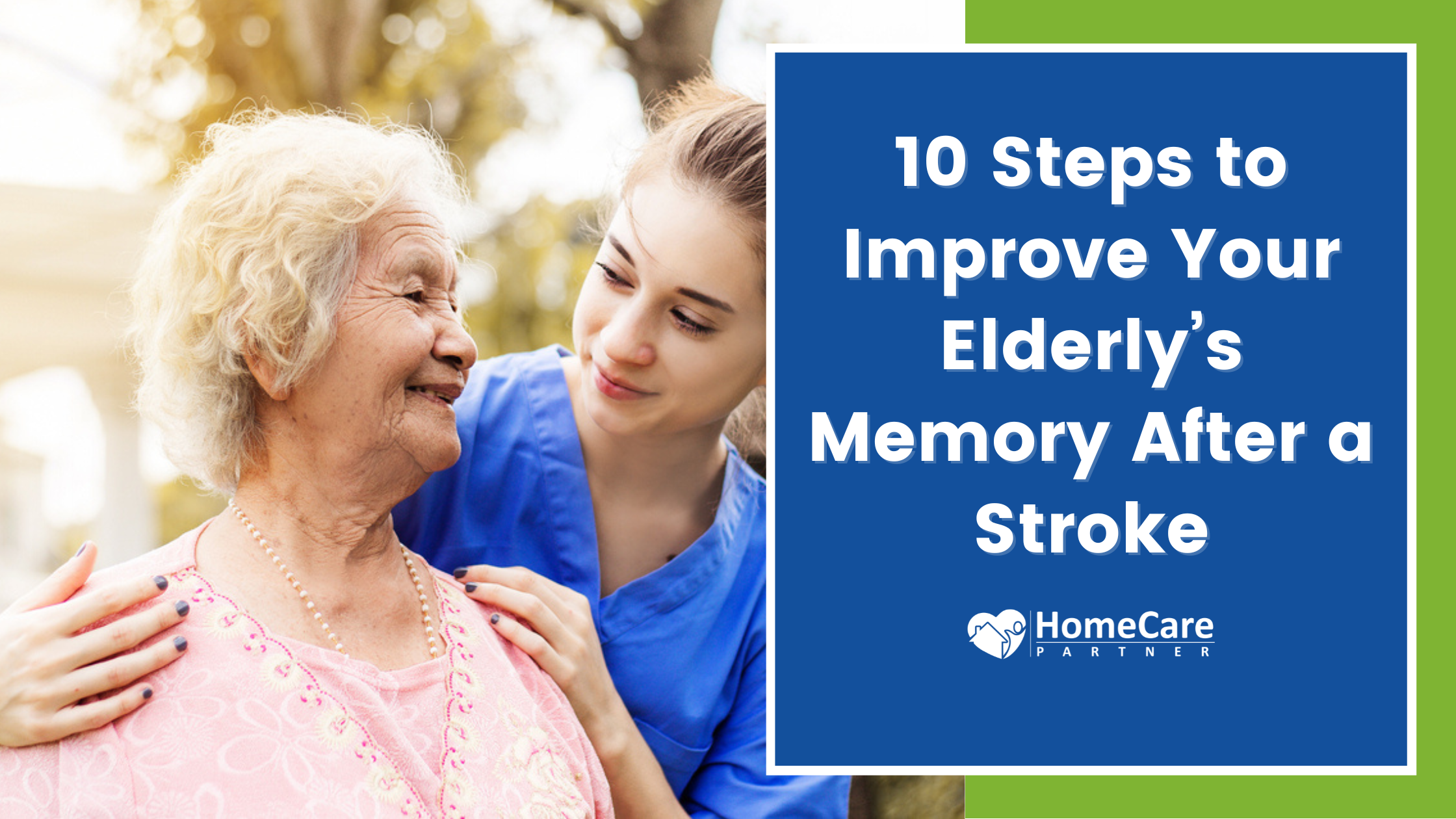


A stroke is a serious cognitive condition that can affect your elderly loved ones. This medical emergency occurs when the blood supply to a part of the brain is either reduced or stopped. As a result, the brain tissues don’t receive adequate oxygen and nutrients, which leads to the death of brain cells within a short time.
Weakness, fatigue, problems in balance and coordination and memory loss, etc., are cognitive after-effects that your elderly loved ones may struggle with after a stroke. Though many of these side effects may improve over time with proper care, their memory may never be as good as it used to be. Fortunately, there are various activities that can help your elderly loved ones to restore their memory after a stroke.
Follow these 10 steps to improve memory after stroke for your seniors:
Visualizing various things is a great way with which your elderly loved ones can build their memory. To do this, ask them to create a picture in their mind of what they like to remember. Then let them visualize themselves in their past memory. They can visualize themselves performing the activity in their mind. This will help them to remember things and improve their memory.
Improving cognitive function plays a huge role in increasing memory. Let your senior who suffered from stroke stimulate their brain. They can do so by trying various activities like painting, gardening, cooking, etc., to push their brain to learn new information and do new things.
Various studies suggest that listening to music can help promote memory recovery in stroke patients. Let your elderly loved ones listen to music daily, as it can help their brain in various ways. Let them pay attention by listening to the words and understanding the emotional undertone and meaning of the song. This will help them to remember what they have just heard. Music can also relax the brain, which promotes healing and function.
According to studies, daily physical activities can improve cognitive function post-stroke. Improvement of cognitive functions can positively affect memory as both are interrelated. Having your elderly loved ones perform daily physical activities like jogging, walking, and mild exercises for at least 30 minutes will be extremely beneficial to their memory and overall health.
Following a routine and repeating the same tasks daily in an organized manner is one of the best ways to improve memory. A routine for your elderly loved ones that should include everything they need to do for a regular day. This may include morning chores, evening and bedtime activities, etc.
It is extremely important that a stroke survivor has a proper healthy diet. To improve the memory of your elderly loved ones who survived a stroke, you need to incorporate a brain-healthy diet containing fresh fruits and vegetables and fish rich in omega-3 fatty acids. Consuming these foods will help their brains to recover faster and improve their memory.
Another way to help your elderly loved ones who have survived a stroke recover their memory is by setting up reminders on a regular basis. Keep reminding them from time to time about what they need to do in their daily routine. Slowly but surely, their memory will improve as they won’t forget things after consistent reminders.
Stimulating the mind is one of the best ways to improve the memory of stroke survivors. Let your elderly loved ones engage in games that require them to use their brain. Checkers, chess, sudoku, etc., are some of the simplest yet most effective games that stimulate the mind and help regain and improve memory. You can also let them use various therapy apps which provide different brain exercises to improve their memory.
The brain and body need time to heal after a stroke. Make sure that your elderly loved ones take things slower and get proper rest from time to time so that their body and mind are not overworked. When your loved ones are well rested, they will feel that their focus and attention have improved, which in turn will help them remember things better.
Organize all the necessary items your elderly loved one uses for their daily activities. This will help them remember what they need to do and when. Your elderly loved ones would be able to do their daily activities by remembering the things that are placed in an organized manner. This will slowly increase their memory.
Caring for your elderly loved ones and improving their memory can be difficult. Following the previously mentioned steps will help improve memory after a stroke for your elderly loved ones. But if you find it difficult to take care of them, you should consider in-home care services. In-home caregivers are professionals who will take care of your loved one’s needs with 100% commitment.
Are you looking for an in-home caregiver for your elderly loved one who has survived a stroke in California? If yes, then Home Care Partner is the right solution for you. We have highly trained caregivers who will provide quality care to your loved ones. Contact us today to learn more about our in-home care services.

Home Care Partner wants you to be confident in choosing us. We want to show that our care is unmatched!

Get 20% OFF a week's worth of care!
We want to show you that our care is unmatched.
Leave a Reply
Your email address will not be published. Required fields are marked *